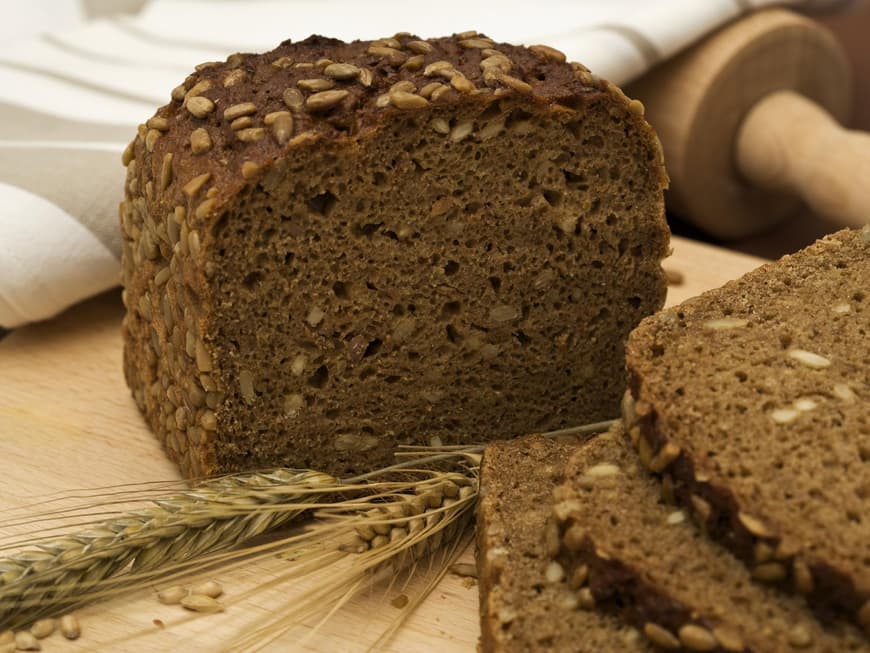
Dietary fiber: Only in plant-based foods
Dietary fiber cannot actually be broken down by the stomach and small intestine; it reaches the large intestine undigested. They are only found in plant-based foods such as fruit, vegetables and cereals.
30 grams of fiber per day is recommended
Only in the large intestine do the substances become bacterial food: intestinal bacteria break them down and use them as a source of energy. The resulting degradation products regulate digestion. And dietary fibers have even more effects: They bind bile acid, oestrogens, carcinogenic substances and cholesterol. They also make you feel full and thus prevent obesity. The German Nutrition Society recommends 30 grams a day. Unfortunately, we usually only manage 18 to 20 grams in our diet.
Most are found in cereal products
Wholemeal products such as wholegrain rice, muesli and wholemeal bread are particularly rich in fiber: This fiber stimulates intestinal activity best. At least half of the daily amount of 30 grams should therefore be consumed in the form of cereal products. Pulses, potatoes, fresh fruit, vegetables, salad and nuts are also good sources.
Dietary fiber slows down the rise in blood sugar levels
Many international studies have now confirmed that regular intake of fiber in the diet prevents diabetes, because the miracle substances slow down the rise in blood sugar after eating and also ensure that the cells respond better to insulin. However, researchers have not yet found out why this is the case.
Only change your diet slowly
However, if you want to change your diet, you should only do so gradually and increase your fiber intake slowly - otherwise you may experience bloating and sometimes even abdominal pain. It is also better to start with finely ground wholemeal bread and chew it very well, as this is better tolerated by the stomach. Important: drink a lot. Otherwise the substances cannot swell and are then poorly tolerated.

